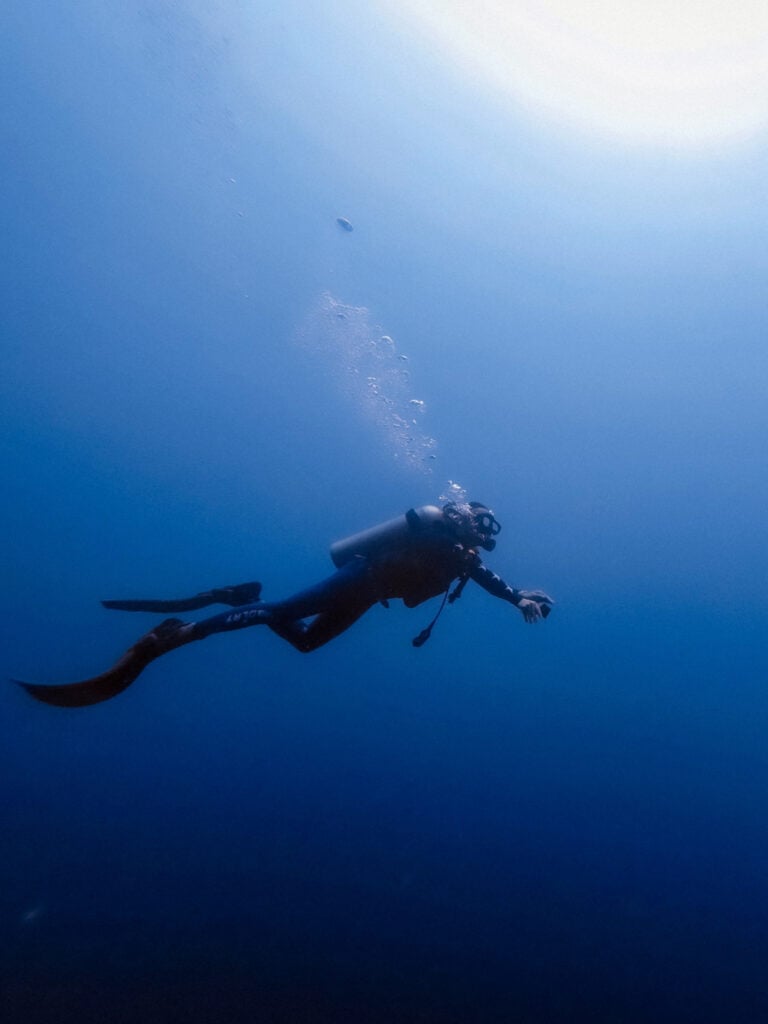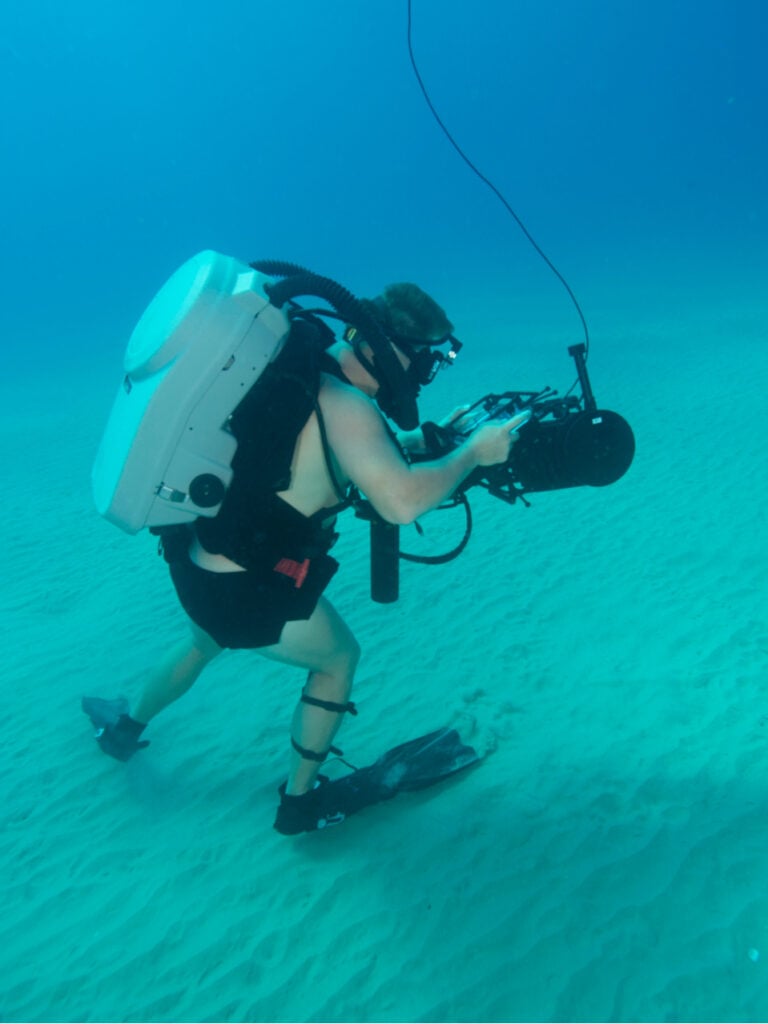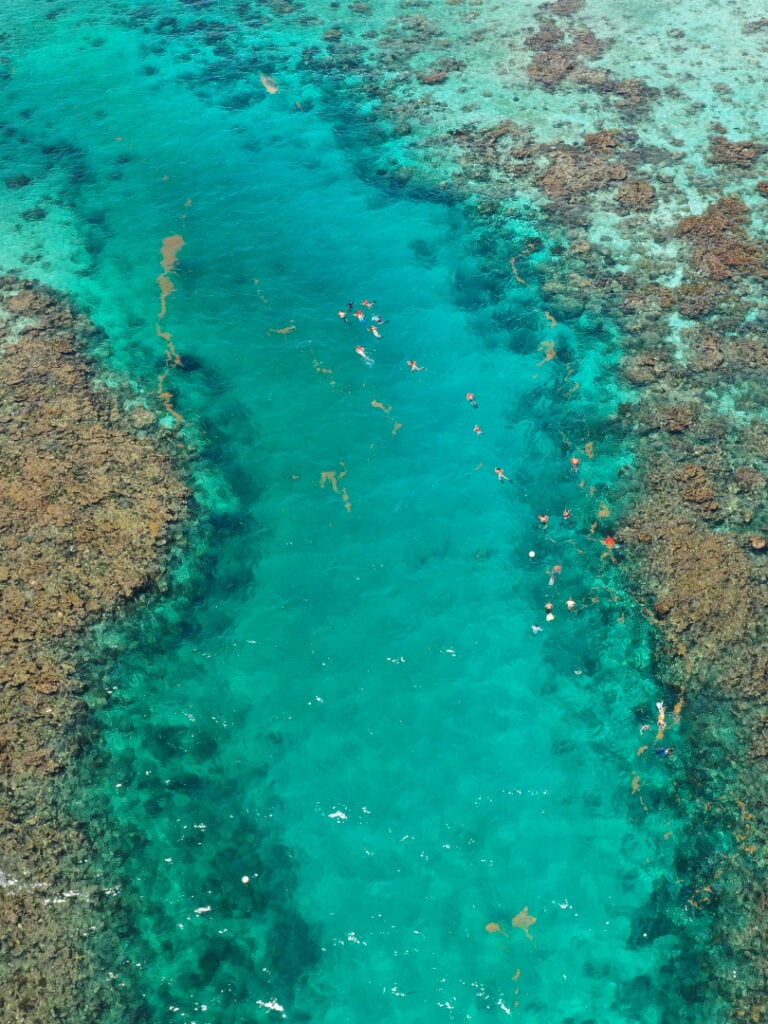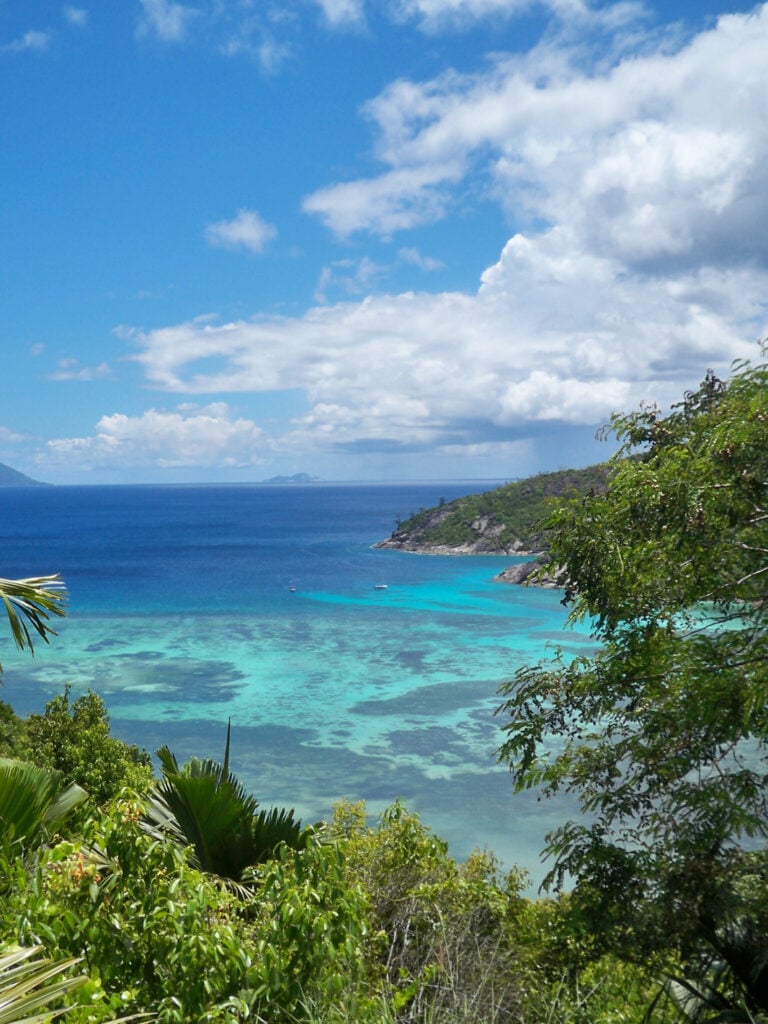From the postcard-perfect Coral Bay to the hidden beauty of Secret Cove, these spots promise stunning photos and unforgettable views.
GVI
Posted: August 29, 2024

Tasneem Johnson-Dollie
Posted: December 9, 2022
7 min read
Did you know that you could up your Professional Association of Diving Instructors (PADI) dive certification while volunteering abroad?
Well, there are volunteer programs abroad that are set up to help you do just that. Take your dive skills to new depths in some of the world’s best dive destinations, and learn all you need to know to land your PADI Advanced Open Water Diver certification.
You feel the weight of the scuba gear on your back, and the layer of warmth between the suit and your skin. You’re trying to remember the step-by-step instructions you learnt just a little while ago before you back-roll into the open ocean.
Your first time in the water can be thrilling and terrifying. It can take some time before your nerves begin to settle and you can fully enjoy your dive.
Once you’ve got your PADI Open Water Diver certification, you might be hooked and want to get more serious about your dive skills.
This is where the PADI Advanced Open Water Diver certification comes in, the next step in boosting your abilities.
This course is all about diving deeper –both in the water and within yourself. It’s set up to help you build confidence in open water diving while learning more advanced scuba diving skills.
The PADI Advanced Open Water Diver course can be done right after your PADI Open Water Diver certification. But don’t be fooled into thinking that this course won’t keep you on your toes – or your flippers if you’re already in the water.
Adventure is the name of the game for anyone signing up to learn advanced scuba diving skills.
Under the supervision of professionals, you can be more creative with your dive skills – exploring more of the underwater environment, and trying out new techniques.
Where your beginner’s course made use of confined water dives in backyard swimming pools, as an advanced dive skills student, every experience will be out in the open water.
And how deep can you dive? To breathtaking new depths of between 18 and 30 metres.
And the course has adventure built into it.
The PADI Advanced Open Water Diver course requires you to complete five adventure dives to become qualified. Each adventure dive gets you practising a different specialty dive technique. Two of these dives have been set for you – the deep and underwater navigation adventure dives.


When it comes to advanced open water diving, choosing to do the PADI Advanced Open Water Diver course can get you ahead in the following ways:
The course teaches you everything you need to know to have the safest open water diving experience.
As you take a closer look at topics like no-decompression limits, decompression sickness, nitrogen narcosis and the protocols of deeper diving, there’ll be nothing missing from your diving toolkit.
Dive centres look at your level of certification and experience before splitting divers up into groups. This means that if you’re only certified in open water diving with no training to go deeper, you might be stuck in a group of less experienced divers and taken to easier dive sites.
As a certified PADI Advanced Open Water Diver, you’re one gigantic step closer to achieving the ultimate recreational diving qualification, or even becoming a professional diver.
If you’re looking to do the PADI Master Scuba Diver course, then the five adventure dives clocked as part of your PADI Advanced Open Water Diver certification will count towards this course.
Because diving is a daring business, getting diving insurance should be at the top of any diver’s to-do list.
But it’s important to remember that even a great diving insurer may not pay you out for accidents you have between 18 and 30 metres if you don’t have your PADI Advanced Open Water Diver certification.
So leave the pressure to the dive apparatus, and take a responsible approach to your diving decisions.
While getting a PADI dive certification is an adventure in itself, volunteering abroad can take your experience to a whole new level.
Picture yourself sinking below the silky blue waters of the Indian Ocean, lazily swaying with the rhythm of the sea. A second later you spot a school of bright red fish flitting by, and your eyes begin to take in the expanses of coral reef cosying up to the seabed or jutting out of rocks.
This could all be a reality.
Here are two volunteer programs that could see you swimming into advanced scuba diving in the world’s best scuba diving destinations.


Take your passion for diving to Puerto Morelos. This is the perfect place to dip into adventure diving, since its sandy beaches give way to warm blue waters that are home to the second-largest reef system in the world.
This program teaches the techniques you need to survey coral reefs – and lands you a bonus PADI Coral Reef Researcher Distinctive Specialty certificate. The information collected in these surveys goes toward safeguarding the Mesoamerican Barrier Reef System.
And there are tons of opportunities for you to be a part of after your dip each day.
You can learn the local language, and try Mexican cuisine, immersing yourself in the country’s culture. And you can even boost your marine know-how by learning to identify different types of fish and other sea creatures.
And there are also opportunities across the ocean.
This program is set in Mahe, and aims to give divers one to two chances to dive or snorkel each day. So ticking off your adventure dives can be done in record time.
And the ocean here is swimming with things to see – like sharks, rays and dolphins.
Volunteers can make a positive contribution to this marine ecosystem by collecting vital information on coral reefs, and monitoring how they are affected by climate change.
This info keeps the Seychelles National Parks Authority up to date, and helps them to make decisions that are best for the future of coral reefs.
And caring for coral reefs is taken a step further in Mahe, where volunteers can be a part of the coral reef rehabilitation initiative. This means taking the most resilient nursery-grown corals and transplanting them onto the ocean reef.
So there are ways to take your PADI dive certification to the next level while also taking the time to make a positive impact in our oceans.
Take a look at our volunteer programs that go beyond just upping your diving ante, and get you contributing to the wellbeing of our oceans.
By Tasneem Johnson-Dollie

From the postcard-perfect Coral Bay to the hidden beauty of Secret Cove, these spots promise stunning photos and unforgettable views.
GVI
Posted: August 29, 2024